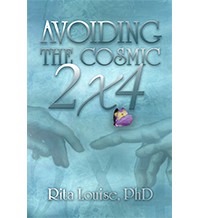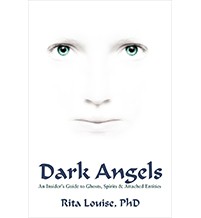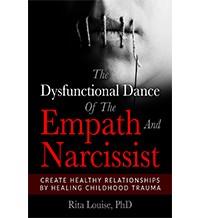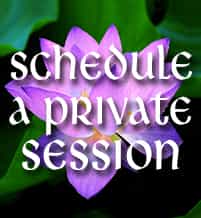Why People Pleaser’s Feel Guilty
People pleaser’s guilt can feel overwhelming, driving individuals to prioritize others’ needs over their own. This article explores the causes of guilt in people pleasers, the difference between true and false guilt, and actionable strategies to break free from self-sacrificing habits. Whether you’re an empath struggling with boundaries or seeking to overcome guilt, this guide offers practical steps to reclaim your authenticity and emotional well-being.
True Guilt vs. False Guilt
One of the biggest things that keeps a true people pleaser pleasing is guilt. Research suggests, “Guilt is a self-conscious emotion that arises when we believe we’ve violated our moral standards or harmed someone, known as true guilt. False guilt, however, stems from perceived social disapproval rather than actual wrongdoing, often plaguing people pleasers who fear disappointing others (Psychology Today, 2025).”
There are two types of people pleaser’s guilt: true guilt and false guilt. Recognizing the difference between these guilt types is the first step toward breaking free from self-sacrificing cycles. We experience true guilt when we act in a way that violates one our internalized ethical guidelines. If we do something that we perceive as being immoral; lie to a friend, steal from a store or God forbid kill someone, we feel guilty. Our internal mechanisms recognize we did something wrong and our body responds in kind.
False guilt, on the other hand, is typically experienced when we fear the disapproval of others. Individuals who are fawn types, people pleasers or suffer from co-dependency are often plagued by false guilt. It creeps in when they do something for themselves or when they express a boundary. Many times false guilt is tied to a belief that you are not worthy enough to make yourself a priority.
The Psychology Behind People Pleasing
Guilt can be a huge barrier in being assertive, especially for a people pleaser. It makes us question our choices and wonder if our internal rules are somehow flawed. We may feel responsible. We may not want to disappoint someone. We may not want to hurt their feelings.
It is especially hard for an empath to experience someone else’s pain, suffering or upset. According to the PubMed article – Empathy, Guilt Proneness, and Gender: Relative Contributions to Prosocial Behaviour, “Empaths, who are highly attuned to others’ emotions, often experience intense guilt when they perceive they’ve upset someone. A 2016 study found that guilt proneness, especially in women, drives prosocial behaviors like people-pleasing, as individuals seek to repair relationships (Torstveit et al., 2016).”
It always feels better on the inside for an empath if the people around them are happy. The level of inner discord this can create it is no wonder why many empaths lack boundaries and cave in to people pleasing behaviors. It can be excruciating, especially if what they are feeling is coming from someone they love.
By allowing people pleasing guilt to control us, it interferes with our ability to be our authentic selves. We devalue ourselves each and every time we do not honor our choices. These self-sacrificing cycles of deprivation can only lead to exhaustion and resentment on our part.
Using Guilt as a Tool for Growth
Hard as this may be to hear, guilt is a wonderful, yet challenging internal indicator as you move forward on your road to healing. Think about it. A friend calls requesting your help. In the past, perhaps your knee-jerk reaction would be to agree to whatever was being asked. This automatic reaction works to minimize any guilt that may bubble up to the surface.
Strategies to Overcome People Pleaser’s Guilt – Setting Healthy Boundaries
Perhaps, with all of the work you have been doing on yourself it is time to try a new strategy. Take a few minutes to emotionally regulate. You can also use the time you have just garnered to dig into your psyche to sort through any feelings of guilt that may arise. “Why am I feeling guilty?”
Maybe it is an appropriate time to express and set a healthy boundary. Tell your friend that you will let them know in a few minutes or the next day instead of giving an automatic reply. This thought is reiterated in the Verywell Mind article, 8 Ways to Stop Being a People-Pleaser. They suggest:
“Setting boundaries is crucial for overcoming people pleaser’s guilt. Start by practicing clear, concise refusals, such as saying, ‘I need to check my schedule first.’ Research shows that clear communication strengthens relationships rather than harming them (Verywell Mind, 2024)”.
Love and honor yourself regardless of your decision. You might cave into your guilt anyway. And if that is the case, it is OK. Please do take a moment and observe what was going on inside of you that made you give up on yourself. We are all not perfect when we embrace a new skill. In time, and with practice, you will move from observing your inner world, and the people pleasing guilt that is evoked in you, to perhaps making a different choice.
Healing is a process where we take one step at a time. Creating and maintaining healthy boundaries is a huge, huge step if you have lived your whole life afraid to stand up for yourself.
Do you have people pleaser’s guilt and need help?
Ready to break free from people pleaser’s guilt? Taking action is the key to making positive changes in your life. This includes your health. So don’t wait! Take your next step right now and contact Dr. Rita to schedule a private consultation.
Medical Intuitive Reading – Intuitive Counseling – Energy Healing
© Copyright Rita Louise, Inc. – soulhealer.com. All rights reserved.




